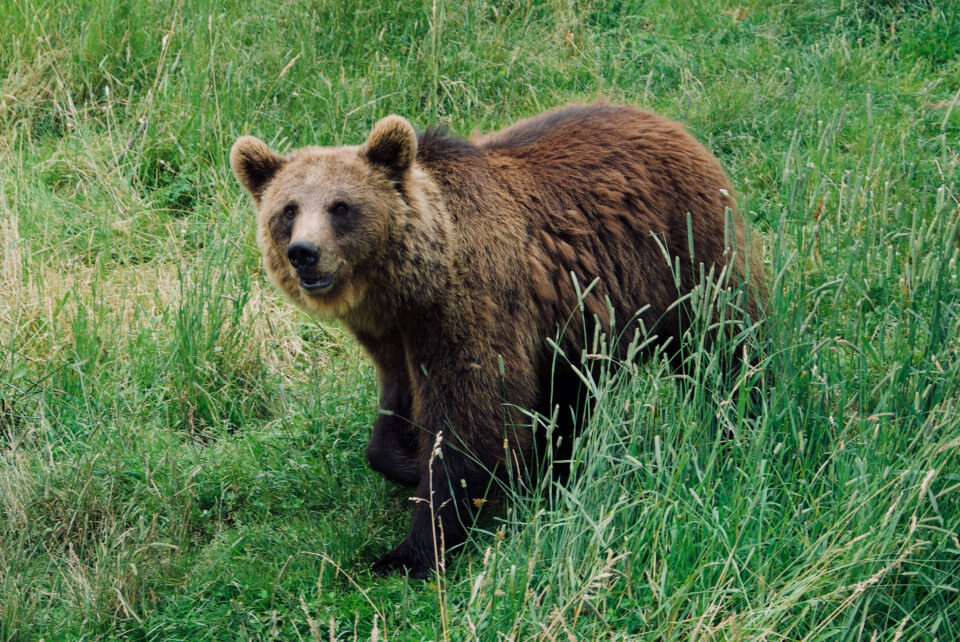-
Scam calls in France more than double in a year
Complaints about unsolicited calls are second only to those about fibre optic internet
-
‘Medical deserts’ major issue in upcoming local elections in France
Access to healthcare is now a more pressing concern than education, mayors say
-
‘Digital ID’ to be accepted at French airports this summer
Users of the France Identité app will be able to board certain flights using ID on smartphone
France opens door to bear-scaring measures in the Pyrénées
A new decree states that farmers can request authorisation to use light and sound to scare bears if they are threatening livestock

Farmers in mountain areas in the French Pyrénées could be allowed to use bear-scaring measures, with some conditions, in case of attacks on their livestock, a new decree states.
The government on Friday (May 5) published a decree in the Journal Officiel stating that farmers can request authorisation to use the measures, in case of brown bear attacks on their animals.
It says France’s agriculture minister, Marc Fesneau, acted on the issue after previous prefectural decrees allowing bear-scaring tactics were overturned in court. They were rejected because bears are a protected species in the area.
Since the bears’ reintroduction in the mountains in the 1990s, farmers have claimed their livestock is in danger and called for more preventative measures. The Office français de la biodiversité (OFB) counted 331 bear attacks on farm animals in the mountains in 2022, and 333 in 2021.
The new decree states that departmental prefects may authorise “scaring measures aimed at protecting domestic herds to prevent damage by predators”.
These ‘low-level’ bear-scaring measures may include the use of lights (torches, beacons) and sounds (bells, whistles, sirens). Non-lethal sound shots may also be permitted if the previous measures have not worked, and if the “livestock concerned has already suffered damages”, the government said.
The decree states: “In the heart of the Pyrénées National Park, no heightened scaring measures can be authorised.” Even low-level scaring measures require authorisation from the park director, it added.
"Scaring measures implemented since 2019 in the Pyrénées have successfully caused the bears to flee, and thwarted their attempts to approach any herds,” the government said.
The decree comes after the recent death of a jogger in the Italian Pyrenees, caused by a bear, re-ignited debates on the dangers of and threats posed by brown bears in the mountains. There are currently 76 bears in the region, according to recent counts.
Read more: Brown bear numbers grow in Pyrénées as jogger death reignites debate
Brown bears are protected by a 1992 European Union directive, which requires France to maintain a viable bear population. Some scientists say that a ‘viable’ population means at least 150 bears.
These bears were reintroduced into the Pyrénées region in 1996. They came from Slovenia.
Read more: Brown bear numbers growing in French Pyrenees after reintroduction
After the attack on Italian jogger Andrea Papi, L’Association de sauvegarde du patrimoine d'Ariège-Pyrénées, which is made up mainly of sheep farmers, said in a statement: “It's a fact. Reintroducing bears kills. Residents, holidaymakers, hikers, hunters, farmers, elected representatives…we must all act! Everything must change.”
But in a press release, the bear defence association le Pays de l'ours - Adet said that it was “genuinely emotional about this tragedy” because “this rare event is the first of its kind in south-western Europe for many decades".
The bear that killed the man was later slaughtered, as are other ‘problem’ animals that are thought to have repeatedly attacked livestock. Even bear advocates have called for more measures to prevent deaths.
Read also
The genet - a rarely seen carnivore is at home in French woodland
























